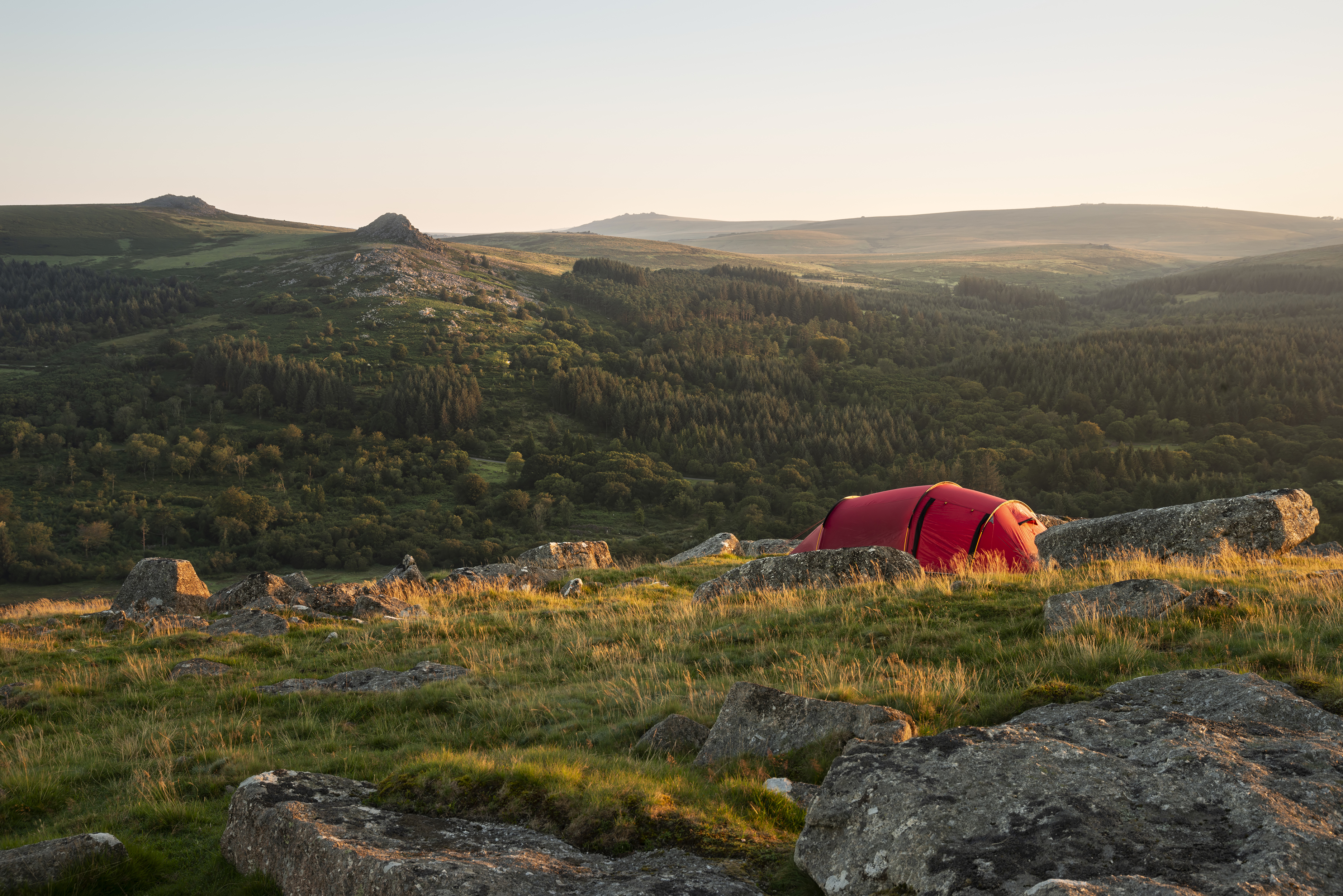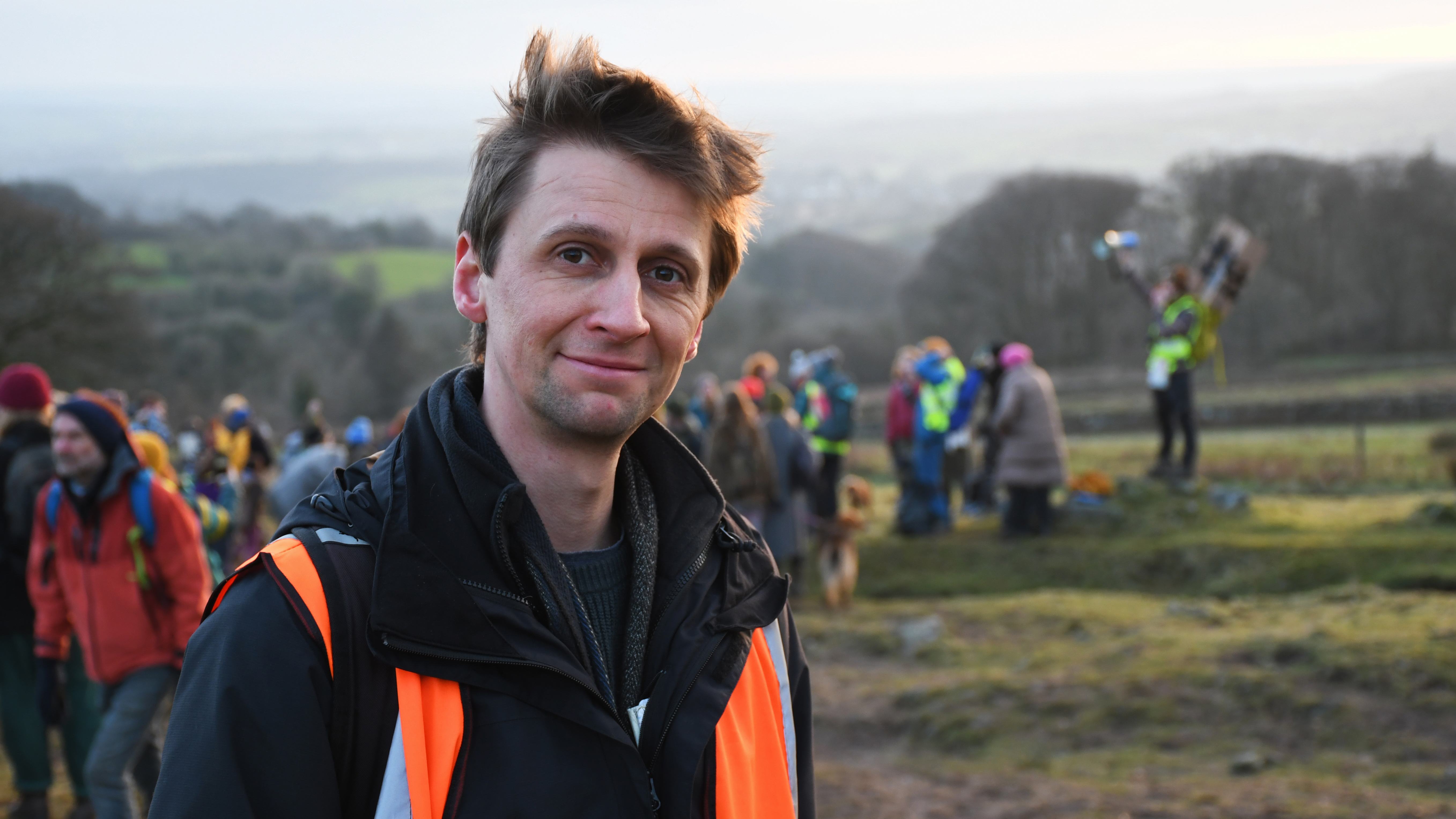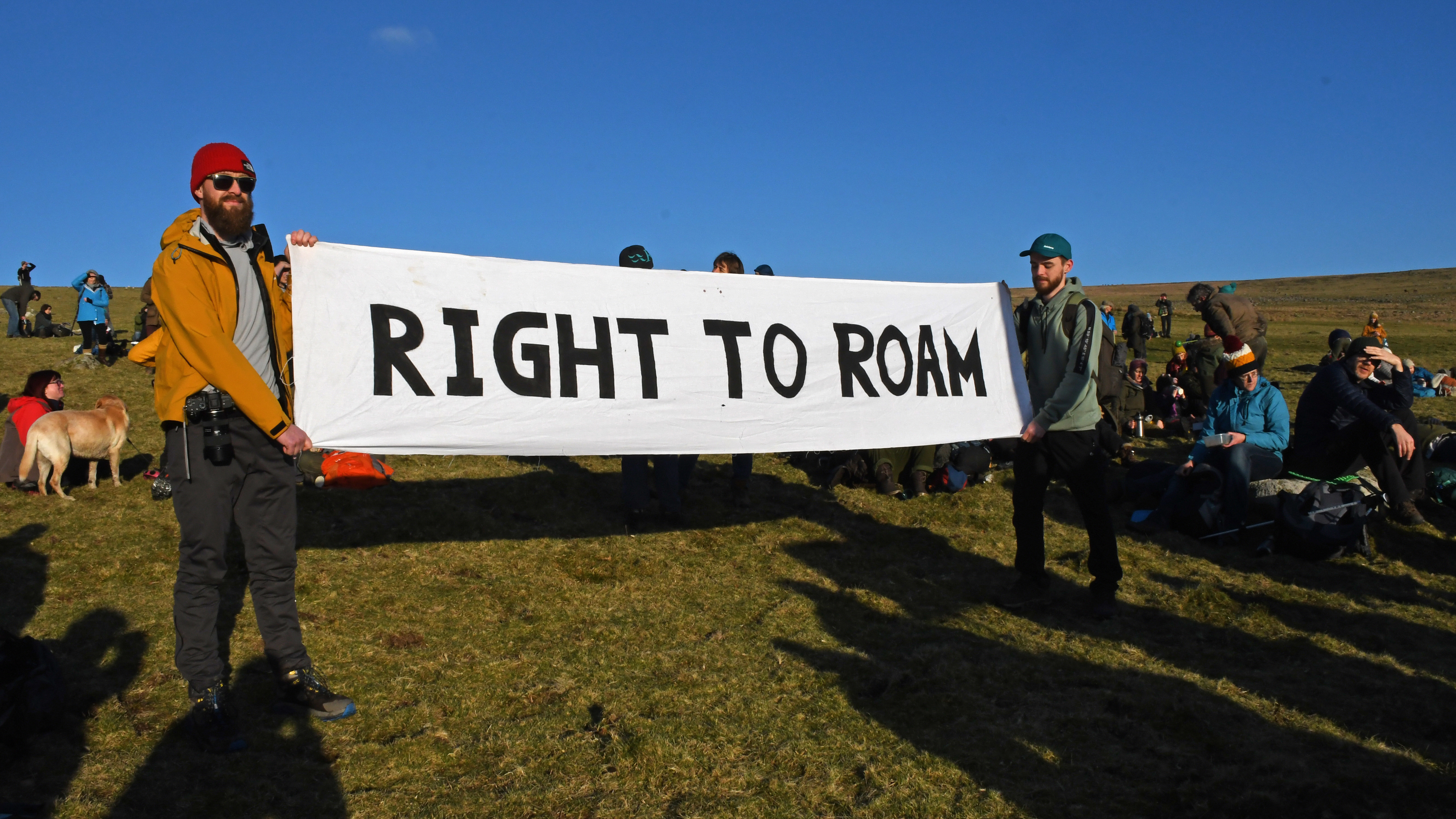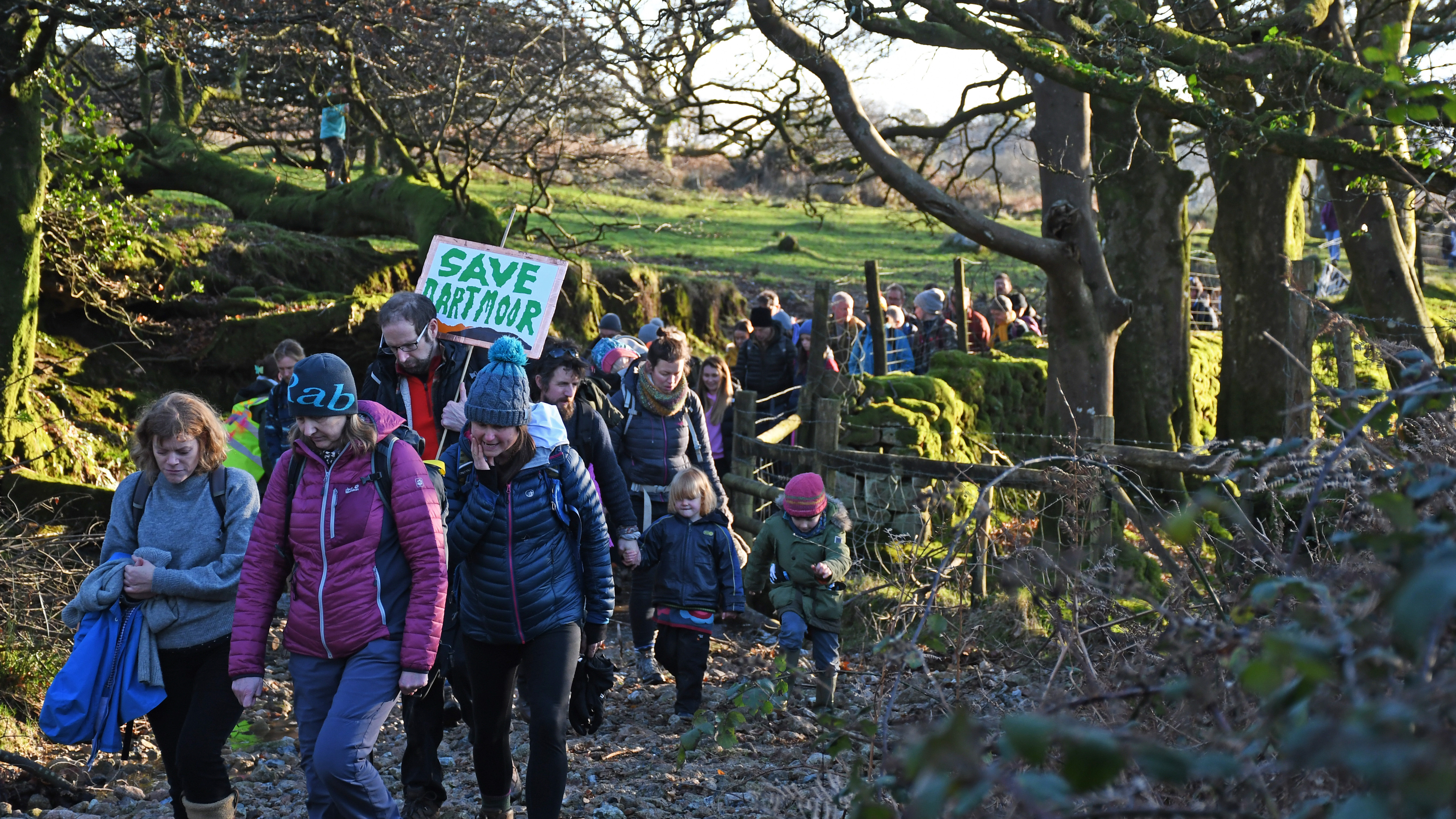Campers go wild on Dartmoor after the court sides with outdoor sleepers
Wild camping is legal on Dartmoor once more – but the short-lived ban has given the battle for better access to the outdoors a massive boost


Thanks to a decision in the Court of Appeal on Monday, 31 July, wild camping has been made legal once again in England – albeit just in one tiny corner of the country. You can now pitch your tent or roll out your sleeping bag and spend a night under the stars on certain parts of Dartmoor without the threat of a landlord, gamekeeper, ranger or police officer asking you to move on.
But, largely due to the reaction of the outdoor community when this right (limited and localised such as it is) was temporarily removed by a legal judgment in January, a massive amount of momentum is now growing behind a push for much better access to the countryside to be granted to the general public, including giving people the right to responsibly wild camp in wilderness areas and other national parks across the rest of England and Wales – rights that are already enjoyed in Scotland (external link). And this movement has widespread support, not just from influential outdoor organisations such as the British Mountaineering Council (BMC) but various political parties in the UK.
- Browse the best tents for backpacking
- Check out the best lightweight sleeping bags around
- Pick the best hiking backpack for your next hiking adventure

Guy Shrubsole from the Right to Roam campaign at the protest march on Dartmoor in January 2023
"This victory for restoring wild camping rights over Dartmoor is a vindication of people power: when thousands of us come together to protest, things can change,” Guy Shrubsole from the Right to Roam campaign told T3 after Monday’s judgement.
"But this is only just the beginning. Simply reverting to the status quo on Dartmoor before the Darwalls' fateful court case is not an option - we want everyone in England to have far better access to nature, not just those of us lucky enough to live near a National Park.
"That's why we'll be building on the momentum of the past few months to redouble our campaign for a right of responsible access across England, modelled on what Scotland has successfully enjoyed for the past twenty years, and extending wild camping rights to many more places. It's time for all political parties to see which way the wind's blowing and commit to bringing in a Scottish-style right to roam for England."

Fight to roam
This year has arguably been one of the most important in the long fight for the freedom to roam in the outdoors across England and Wales since the Mass Trespass in 1932. On 24 April that year, several hundred marchers – an interesting mix of ramblers and Young Communist Party members – defied landlords and the law by striding across the then-privately owned Peak District onto the plateau of Kinder Scout, with the intention of doing nothing more radical than enjoying a nice walk. That act of civil disobedience 90 years ago was met with violence, as the landowner’s gamekeepers physically attacked the walkers, and several of the protesters were arrested by the police and subsequently imprisoned – even though trespass, then and now, is not a criminal offence under English law.
But the tidal swell of passion that had been building for years and which led to the Mass Trespass proved irrepressible. People were no longer willing to put up with archaic laws that dated back to the Inclosure Acts and excluded almost the entire population of England and Wales from the vast majority of the countryside. Ultimately, the actions of the trespassers and the weight of opinion around the point they were making led to the establishment of Britain’s first National Parks and long-distance footpaths and the opening up of large areas of upland, moors, woodlands and coast to common people, with that access now protected by the Countryside and Rights of Way (CRoW) Act.
Get all the latest news, reviews, deals and buying guides on gorgeous tech, home and active products from the T3 experts
It is still remembered and celebrated as a great victory in the outdoor world, but really the success was limited. Still today, just 8% of land in England and Wales can be explored by walkers – let alone wild campers – without permission from the owner. The vast majority of the countryside remains walled and fenced off behind ‘Private Property’ signs, effectively off-bounds to perfectly peaceful people who simply want to walk and explore, enjoying wildlife encounters and, perhaps, experiencing both a sunset and a sunrise away from the noise of the urban sprawl. Wild camping is permitted in just one of the National Parks set up across England and Wales – Dartmoor – and this year’s shenanigans showed that very limited rights could easily be threatened by just one landlord flexing their muscles.
So this week’s decision, a seemingly small victory in the Court of Appeal, actually represents a very large step in the fight to put an end to this level of exclusion. It sent a loud message to landowners that the legal system wasn’t always going to side with them and was, in fact, ready to listen to the wider community. It has given heart and hope to those groups pushing for better access to the outdoors, to the extent that it now feels almost inevitable that our rights to roam (and wild camp) will be extended. And ironically, we have one particular landlord to thank for that.

Wild ride
The ban on wild camping on Dartmoor earlier this year came about because of the actions of Alexander Darwall, a wealthy hedge fund manager who had, relatively recently, purchased a large amount of land in the National Park and was seeking to limit access rights to areas of the moor where he runs commercial pheasant shoots and deerstalking activities.
The right for the general public to enjoy recreational activities on Dartmoor is enshrined in the Dartmoor Commons Act 1985, and until January 2023, it was the very last place in all of England and Wales where people were permitted to pitch a tent (almost) wherever they liked. This gave the moor a magnetic appeal for outdoor enthusiasts, and for decades many generations of backpackers, bikepackers, fastpackers, photographers, bird watchers, star gazers and youth groups (including participants in the Ten Tors and Duke of Edinburgh Award), have enjoyed overnight experiences on Dartmoor, peacefully wild camping without having to worry that they might be moved on at any moment. It was a place where parents and youth leaders could pass on their knowledge about how to camp responsibly, disturbing no one and leaving no trace behind them.
However, in an action that started in October last year, Darwall, who bought the 1,619-hectare (4,000-acre) Blachford estate on southern Dartmoor in 2011, took the Dartmoor National Park Authority to court, with his lawyers arguing that the act of camping was not recreational, and therefore wasn’t covered by the Dartmoor Commons Act. Incredibly, the judge agreed, and the legal right to wild camp anywhere on Dartmoor (not just on Darwall’s land) was abruptly extinguished.

But the loss of this right lit a fuse and sparked a focused form of fury among the ranks of the outdoor community, and well beyond. A spirited fightback was very quickly organised, and within days of the decision being made, over 3,000 people joined a protest walk across Dartmoor. The Dartmoor National Park Authority announced their intention to appeal the ruling, a war chest was quickly organised by access campaign groups such as the Right to Roam and The Stars are for Everyone, and thousands of people contributed funds to assist with the appeal.
Darvall and his legal team had deliberately sought to conflate wild camping with large-scale problem partying in outdoor areas, when in reality, there is no comparison, and they portrayed backpackers and bikepackers as a threat to the natural environment. The vast majority of wild campers operate by a very strict self-imposed code of conduct, adhering to leave no trace principles, and this added insult to injury, giving the fightback against the ban extra momentum.
And on Monday, their efforts bore fruit when the Court of Appeal panel – comprised of Sir Geoffrey Vos, Lord Justice Underhill and Lord Justice Newey – ruled that wild camping does, of course, count as open-air recreation and should, therefore, be permitted on the commons. “In my judgment, on its true construction, section 10 (1) of the Dartmoor Commons Act 1985 confers on members of the public the right to rest or sleep on the Dartmoor commons, whether by day or night and whether in a tent or otherwise,” said Vos.
The result has been heralded as a massive victory by campaigners, who have also made very clear their intention to use the energy, passion and public support that has built up around the case to push for the right to wild camp elsewhere across England and Wales, including in other national parks.
For outdoor explorers and adventurous campers, the future is looking wild.

Author of Caving, Canyoning, Coasteering…, a recently released book about all kinds of outdoor adventures around Britain, Pat Kinsella has been writing about outdoor pursuits and adventure sports for two decades. In pursuit of stories he’s canoed Canada’s Yukon River, climbed Mont Blanc and Kilimanjaro, skied and mountain biked across the Norwegian Alps, run ultras across the roof of Mauritius and through the hills of the Himalayas, and set short-lived speed records for trail-running Australia’s highest peaks and New Zealand’s nine Great Walks. A former editor of several Australian magazines he’s a longtime contributor to publications including Sidetracked, Outdoor, National Geographic Traveller, Trail Running, The Great Outdoors, Outdoor Fitness and Adventure Travel, and a regular writer for Lonely Planet (for whom he compiled, edited and co-wrote the Atlas of Adventure, a guide to outdoor pursuits around the globe). He’s authored guides to exploring the coastline and countryside of Devon and Dorset, and recently wrote a book about pub walks. Follow Pat's adventures on Strava and instagram.